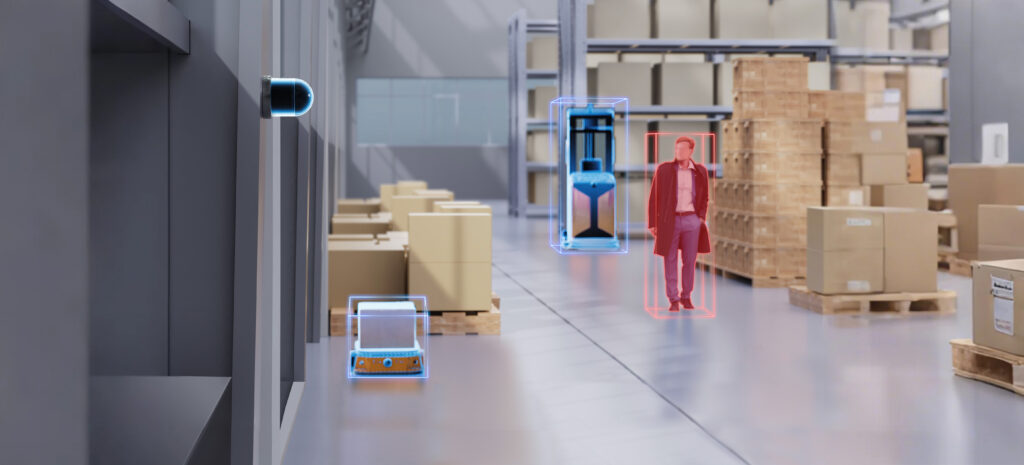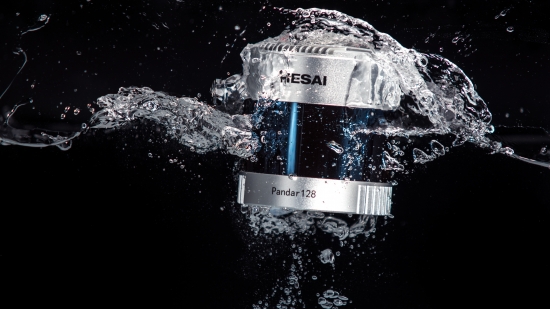
Hesai Technology Releases Pandar128: A 128-Channel, High-Performance Lidar for Autonomous Driving Applications
Hesai, a global leader in LiDAR sensors, officially released its next-generation mechanical LiDAR, Pandar128. Designed for automotive volume production, Pandar128 is one of the most advanced mechanical LiDARs available and offers an ideal solution for autonomous driving applications.
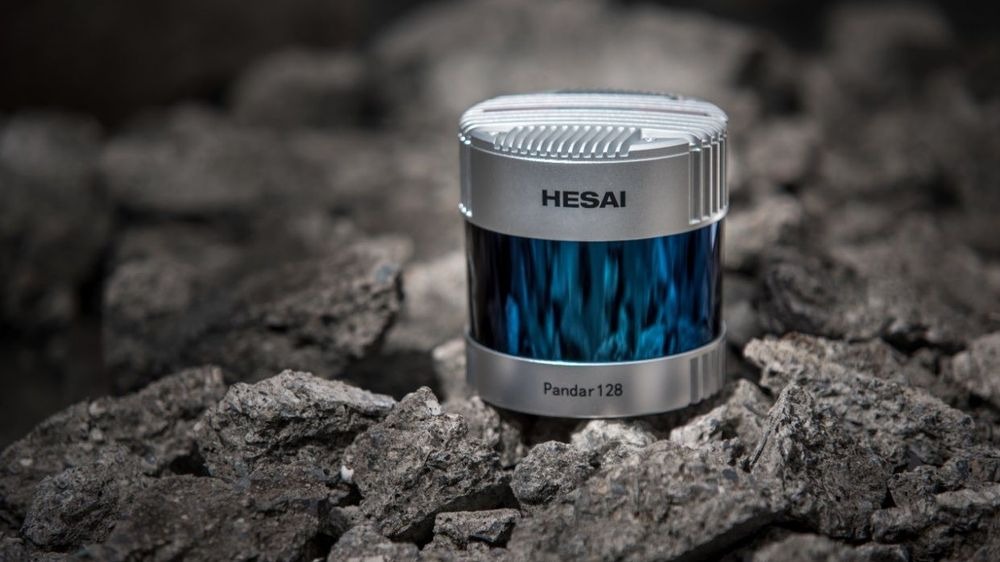
Pandar128: 128-Channel, Image-like Resolution, High-Performance LiDAR
Pandar128 boasts:
- Resolution: up to 0.1° (H) * 0.125° (V) at 10 Hz refresh rate
- Up to 6,912,000 points/sec
- Detection capability: 200 m (10% reflectivity target)
- High reflectivity accuracy and precision
- Higher ingress protection rating: IP6K9K
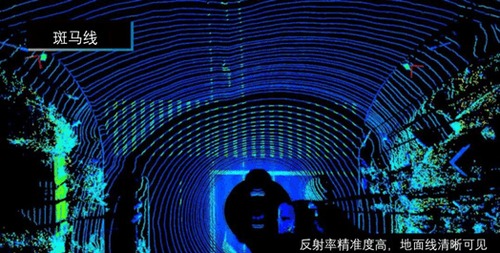
Pandar128 Point Cloud
Pandar128 represents a massive leap in performance over existing mechanical LiDAR sensors. It offers the finest horizontal resolution (up to 0.1°), 1.5x the total points produced by other available 128-channel LiDARs, and has a detection capability of 200 meters @ 10% reflectivity. This unrivaled measurement frequency and distance enable superb perception over an extended range, providing autonomous driving systems with longer reaction time critical for safe operation at medium-to-high driving speeds.
Pandar128 is designed with several other noteworthy improvements. It offers a higher level of ingress protection (IP6K9K), ensuring reliability in all weather conditions. Additionally, Hesai’s proprietary, industry-leading interference rejection feature has been further refined, reducing the noise rate.
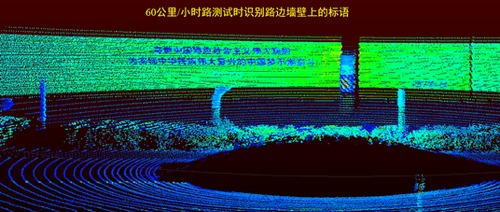
Pandar128 Point Cloud
Despite comprising twice the number of beams as Hesai’s Pandar64, Pandar128 retains a small form factor: it is just 7 mm taller and weighs only 1.63 kg. Pandar128’s compact design allows for seamless integration into a vehicle’s exterior for a more aesthetic configuration. The new system architecture also minimizes power consumption, requiring a maximum of 27 W (10 Hz), despite the massive data volume.
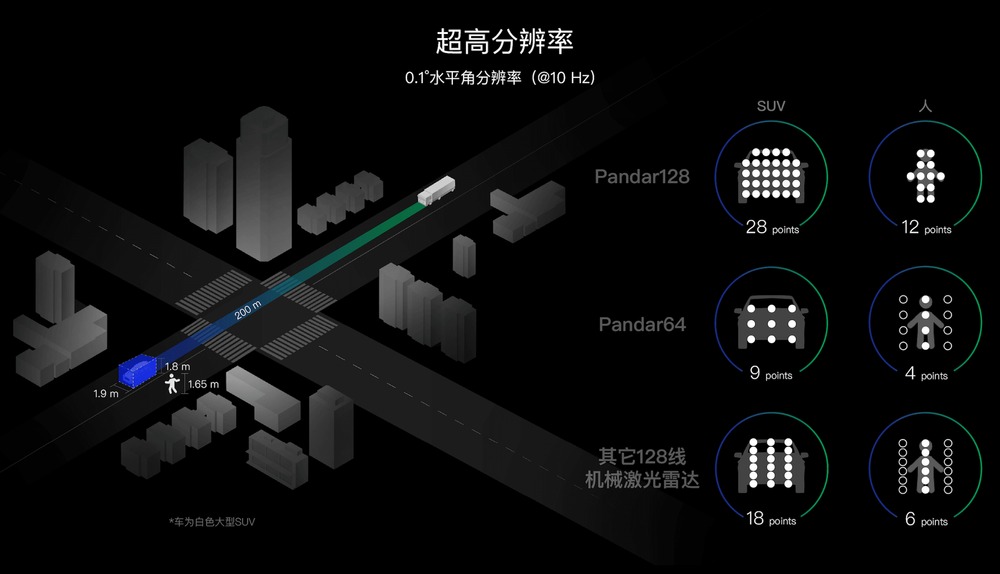
Volume comparison between Pandar128 and traditional 128-line LiDAR
Most notably, Pandar128 is designed for automotive volume production. It has gone through comprehensive testing and is embedded with several innovative features, such as self-diagnosis for each beam. The sensor data is also encoded to safeguard against data misrepresentation or falsification. Referencing the full array of international automotive standards at the component, product, and process-level, Pandar128 has been meticulously scrutinized and optimized from the ground-up to ensure user safety, system integrity, and reliability.
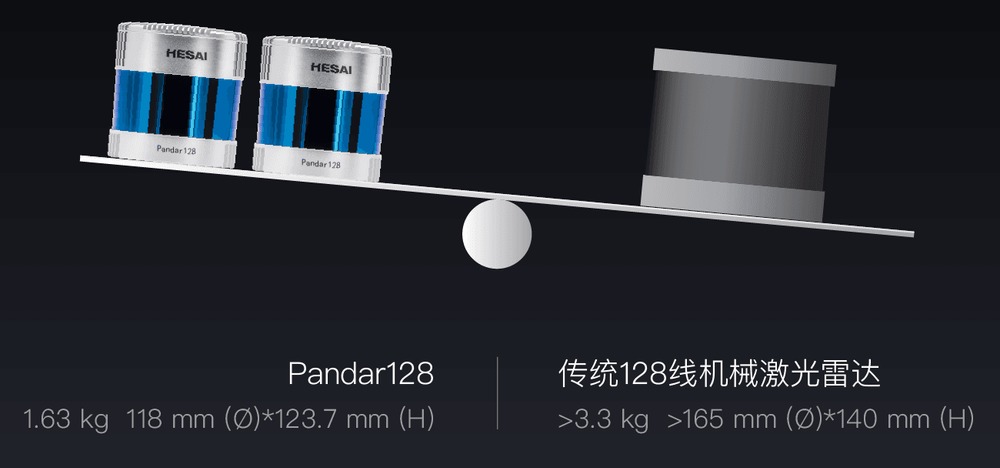
Volume comparison between Pandar128 and traditional 128-line LiDAR
A critical sensor in autonomous driving systems, LiDAR – and its production readiness – is a prerequisite for the large-scale deployment of autonomous vehicles. With Pandar128, Hesai continues to push the boundaries of LiDAR technology and engineering to help achieve this ultimate goal.



